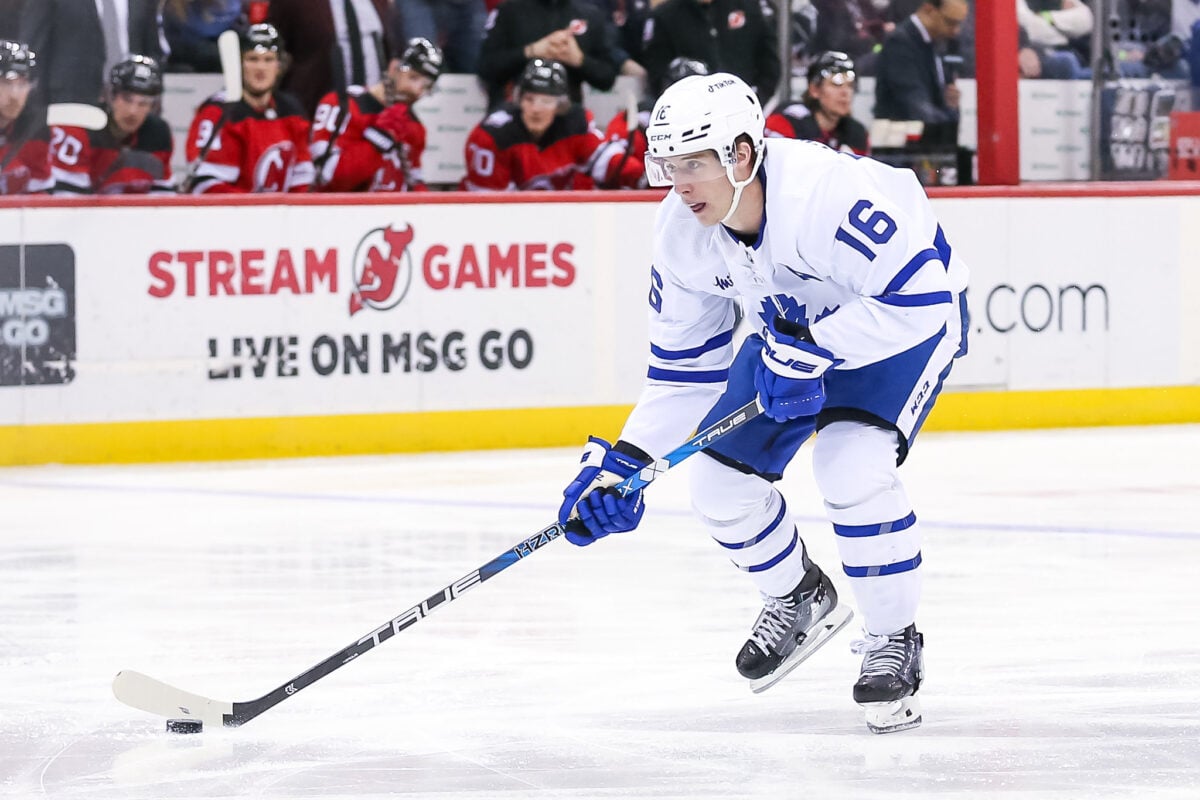The Toronto Maple Leafs entered Friday’s matchup against the Washington Capitals with an opportunity to climb to the top of the Eastern Conference standings. Instead, they fell short in a frustrating 3-1 loss that highlighted their strengths and glaring weaknesses. Here are four key lessons from the game.
Lesson One: Bad Luck Can Swing the Momentum
The Maple Leafs were victims of an unfortunate bounce that proved pivotal. (Not that coach Craig Berube used that as an excuse.) With the score tied 1-1 in the third period, Auston Matthews’ clearing attempt ricocheted off a referee’s skate, landing perfectly for the Capitals’ Connor McMichael to capitalize. Moments like this underscore the unpredictability of hockey and the thin margin for error, especially in tight games.
Related: The Worst Teams in Stanley Cup Playoff History
However, luck alone wasn’t the Maple Leafs’ undoing. Washington dominated at 5-on-5, controlling over 60% of shots, scoring chances, and expected goals. While the bounce sealed Toronto’s fate, the underlying stats suggest the Capitals were the better team overall. The Maple Leafs must overcome such moments by asserting themselves consistently throughout the game.
Lesson Two: Bright Spots Shine Even in Defeat
Despite the loss, there were positives, notably John Tavares’ goal. His second-period goal, set by a beautiful stretch pass from Chris Tanev, showcased the Maple Leafs’ ability to generate high-quality scoring chances. Tavares demonstrated his veteran poise by freezing goaltender Charlie Lindgren and roofing a backhand shot to tie the game.
This play highlighted Tanev’s growing impact on the Maple Leafs’ blue line. Known for his defensive-first skills, Tanev showed he can contribute offensively, a valuable trait for a team seeking more production from its defensemen. Unfortunately, beyond these moments of brilliance, Toronto struggled to maintain consistent offensive pressure, managing just 21 shots on goal compared to Washington’s 26.
Lesson Three: Lineup Decisions and Depth Concerns Persist
Coach Berube’s handling of the lineup in the third period raised questions about trust and readiness. Nicholas Robertson, Nikita Grebenkin, and Ryan Reaves saw minimal ice time as the Maple Leafs chased the game. While Robertson has shown flashes of skill, his lack of opportunity in critical moments suggests the coaching staff still has reservations about his reliability. He might not have a place on this team.
Related: Remembering Maple Leafs’ Goalie Jonathan Bernier
Grebenkin’s enthusiasm and energy are commendable, but his limited usage underscores that he might not be ready for a full-time NHL role. Reaves’s physical presence remains valuable, but his utility in late-game situations continues to be debated. The Maple Leafs need to find ways to optimize their lineup, especially as they face tougher competition. If players like Robertson or Grebenkin are not trusted in crucial moments, will the team consider roster adjustments or explore trade options to bolster their depth? As fun as Grebenkin might be, is he ready for prime time?
Lesson Four: Mitch Marner’s Points Matter
Mitch Marner may have been held pointless in the Maple Leafs’ 3-1 loss to the Capitals, but his season has been extraordinary. If he keeps up his current pace, he could be on track for one of the most impressive campaigns in franchise history. Over 82 games, he’s on pace to total 114 points. That mark would place him third all-time for points in a single season in Maple Leafs history.

Marner’s brilliance is about how he impacts the game in every zone. He’s also excelling defensively, leading the NHL with 14 multi-point games and contributing as a key penalty killer. His playmaking has been nearly unmatched, with his 28 points over the last 17 games ranking second in the NHL during that span.
At Scotiabank Arena, Marner has been particularly dominant. He recently became the fourth Maple Leafs player since 1992-93 to record five consecutive multi-point games at home. These moments underline his ability to shine under pressure, a trait that elevates him into the league’s elite.
Looking Ahead for the Maple Leafs?
With numbers like these, the question looming over the Maple Leafs’ future is simple: what will it cost to keep Marner in Toronto? A 119-point, penalty-killing winger with elite two-way skills could easily command $13 million per season when his next contract comes due.
Related: Ex-Canadien Alex Galchenyuk: 1st Round Draft to Hockey Pilgram
While Marner focuses on this season and helping the Maple Leafs achieve postseason success, he’s cementing his legacy in the Blue and White. If he can sustain this pace, he will etch his name in the franchise record books and solidify himself as one of the NHL’s premier stars.
